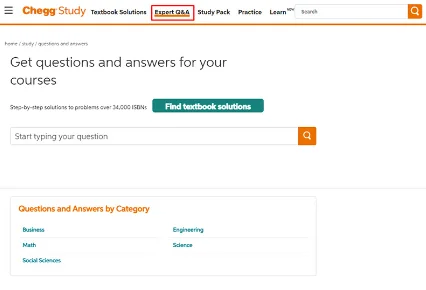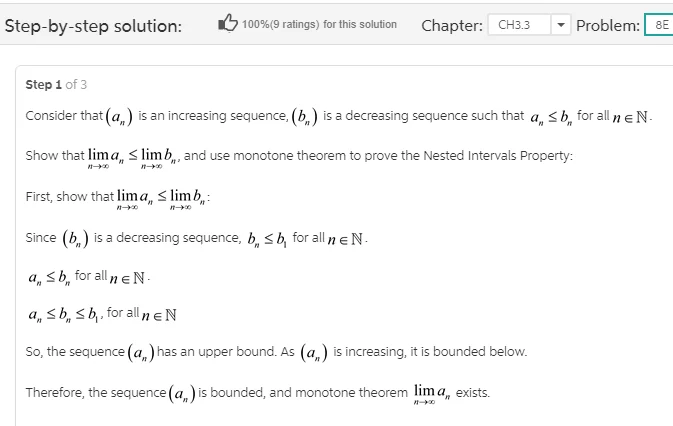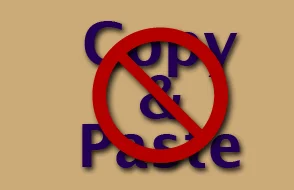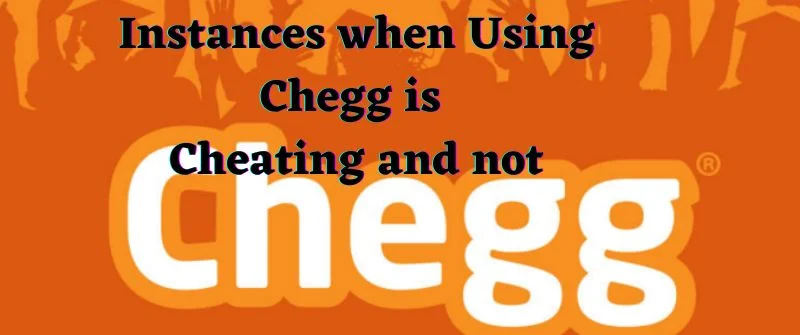Chegg offers students solutions to textbook problems, tutoring services, and more. While many people use Chegg for legitimate purposes, there is an ongoing debate about whether or not using the platform is plagiarism or cheating.
In this post, we will explore instances where using Chegg can be cheating and when it is not. We will also discuss why academic integrity is important.
Is Using Chegg considered Plagiarism?
Chegg can be a valuable tool for students if used correctly. Students can use it to check their answers, clarify difficult concepts, or seek guidance from a tutor.

Using Chegg cannot be plagiarism if students use the platform to supplement their learning. They should not depend on it as a shortcut to avoid doing their work; using Chegg can be a legitimate and helpful resource.
Using Chegg can be plagiarism if a student uses it to submit work that is not their own. Precisely, if a student copies solutions from Chegg and submits them as their work without proper citation.
As such, it could be a clear violation of academic integrity. For that reason, it can lead to serious consequences like failing a course, being expelled from school, or even receiving a lower grade.
Using Chegg is not inherently considered plagiarism, but it can become academic dishonesty if a student uses it to cheat. It is vital for students to understand the proper use of Chegg and other online resources and to prioritize academic integrity in their studies.
Instances when using Chegg are plagiarism and cheating
1. Getting homework answers
We can term using Chegg to get homework answers as plagiarism and cheating because it involves submitting work that is not your own.
Chegg gives access to answers and solutions for multiple academic subjects, including science, math, engineering, etc.
Using Chegg to get homework answers, students could be taking credit for work they did not do, which is academic dishonesty. This habit can have severe consequences like lower grades or expulsion from school. Students must know the ethical implications of using Chegg.
2. To get homework done for you
Using Chegg to have your homework done can be plagiarism and cheating. The act involves paying someone else to do academic work on your behalf. This is a form of academic dishonesty, as it is not your original work.
Chegg offers a service where users can submit questions and access step-by-step solutions, making it unethical. It undermines the purpose of homework, which is to reinforce and assess the student’s understanding of the material.

Using Chegg this way puts students at risk of receiving disciplinary action or lower grades. Students need to do their work. They should only seek help and guidance from teachers or tutors when needed.
3. Tutors doing your question
We may consider it plagiarism and cheating because the tutor is completing the academic work on your behalf. Again, the submitted work is not your original work.
Chegg offers tutoring services for students who can get help and guidance. However, it is critical for the student to participate in the learning process actively and to take ownership of their academic work.
Relying on tutors may undermine the purpose of homework, which is to assess and reinforce the student’s understanding of the material.
Students need to do their own work and get help from the tutors rather than depending on them to do the work. And if you depend on such answers, you will get into trouble using Chegg or any other related service.
Instances when Using Chegg is not Cheating or Plagiarism
1. Doing personal revision
The entire thing is not cheating or plagiarism because it involves using the service to reinforce their understanding of the material.
Chegg offers access to textbooks, study guides, and practice problems, which can supplement the student’s learning and assist them in preparing for exams.

As long as you are using the resources to enhance their understanding and not submitting the work as yours, it is an acceptable use of the service.
2. Getting model answers
Using Chegg to obtain model answers as a reference is acceptable because it can help students understand how to approach a problem or question. One can use it as a reference to check their work.
However, students must understand the concepts and not copy the model answer. Whether you took these answers from their website or you got Chegg answers for free, you need to know they are not original.
They are just model answers. So, use the model answer as a guide. After that, completing the work in your own words and style is an acceptable use of Chegg.
3. Using Chegg textbooks
Using Chegg textbooks is simply a means of accessing educational material. Chegg offers access to textbooks for reference or study aid to supplement the student’s learning.
Students can use these Chegg textbooks to review material and better understand concepts while preparing for exams.
It is not plagiarism or cheating as long as the student is using these resources to enhance their understanding and not submitting the work as their own. Students must prioritize their learning and use Chegg and other resources ethically
4. Being taught by Chegg tutors

Being taught by Chegg tutors involves the student actively engaging in the learning process. Chegg tutors provide one-on-one guidance and assistance, helping students to understand complex concepts better and to improve their academic performance.
Tutors can provide feedback, answer questions, and provide explanations, which can help students to understand the material better.
It is crucial for students to actively participate in the learning process and take ownership of their academic work. Using Chegg tutors as a resource to improve understanding and performance is an acceptable and ethical use of the service.
5. Using Chegg for research
As long as the research is conducted ethically, using Chegg for research is not considered cheating or plagiarism. Chegg gives access to many scholarly articles, journals, and books, which can be used as reference material for research papers or projects.
Students can use Chegg to gather information and enhance their understanding of the subject. However, it is vital for students to cite their sources properly and to ensure that their work is original and not plagiarized. Using Chegg for research can be valuable when used ethically and responsibly.
